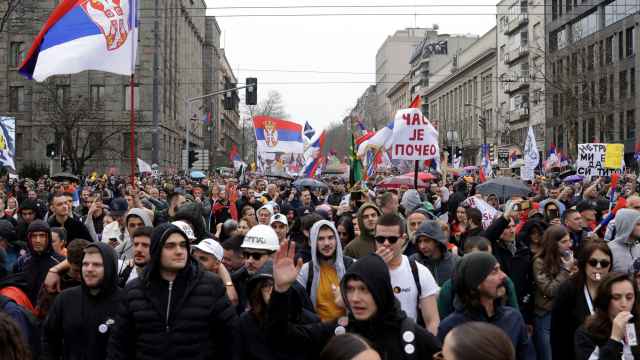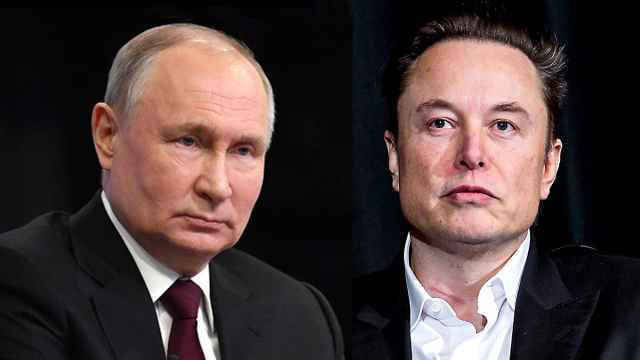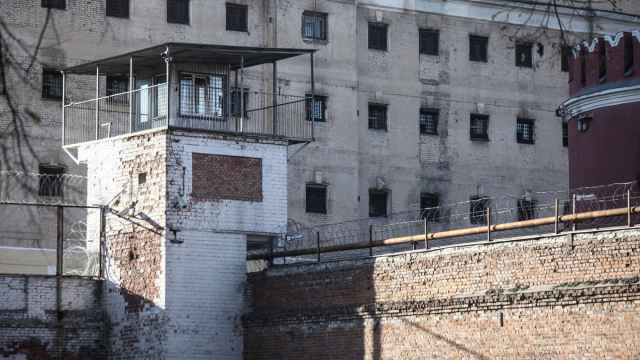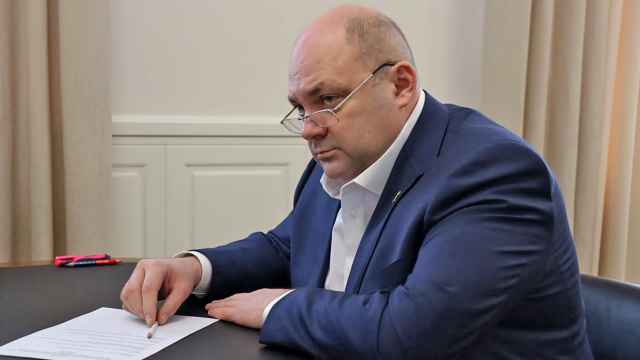Although global oil prices have been high during the first six months of 2011, Russia’s economy is expanding by a moderate rate of 4 percent. At present, there is no reason to believe that the country will return to the average growth of 7 percent that it experienced from 1999 to 2008. Undoubtedly, Russia can perform much better but only if very substantial changes are undertaken.
In a recent paper for the National Bureau of Economic Research, Barry Eichengreen, Donghyun Park and Kwanho Shin analyzed “When Fast Growing Economies Slow Down.” They used international data starting in 1957 and arrived at the conclusion that “rapidly growing economies slow down significantly” by at least 2 percentage points “when their per capita incomes reach around $17,000 in year-2005 constant international prices.” That is about Russia’s current level, and its reduced growth reflects a broader international and historical pattern.
The study does not discuss the causes, and it focuses on when China’s growth is likely to slow down. But the reasons for these regular slowdowns are pretty evident. Soviet leader Leonid Brezhnev used to call this the transition from extensive growth to intensive growth. During extensive growth, a country simply mobilizes available resources — labor, land, natural resources, production capacity and capital.
Intensive growth entails a boost in productivity, which started on a significant scale with the rise of capitalism, the industrial revolution and many other factors around 1800.
The Soviet Union failed to make the transition from extensive growth to intensive growth, but there is no reason for Russia to repeat that failure.
For 3 1/2 years, President Dmitry Medvedev has spoken about such a transition to intensive growth, but he calls it “modernization.” In his Krasnoyarsk speech in February 2008, he started talking out his four I’s: institutions, infrastructure, innovation and investment. He has preached his modernization paradigm persistently, and it has been become widely accepted. But in real life, virtually nothing has been done.
The global financial crisis has hit Eastern Europe hard, but it is striking how the region has reacted in two opposite ways. The 10 new eastern members of the European Union, which are all full-fledged democracies, have undertaken astounding structural reforms in the public sector — notably public administration, education and health care — to render them more efficient. This is especially true of the three Baltic countries, Bulgaria and Romania. Russia and Ukraine, by contrast, have minimized their reforms just to keep their finances afloat, and unreformed Belarus is tottering on the edge of financial collapse.
The fundamental difference between these two groups boils down to the question of whose interests the government serves. In the EU democracies, the state serves the people, who regularly oust their governments in democratic elections because of public dissatisfaction with the performance of public officials. In the post-Soviet countries, on the contrary, the state is focusing on enriching a small ruling elite, which uses some of its rents to repress the population so that it can keep enriching itself further. For such a coterie, the welfare of the nation is not very important as long as the nation does not rise against its self-selected rulers.
Therefore, there is no reason to believe that Russia or the other post-Soviet countries will undertake profound reforms to boost economic growth until they experience a democratic breakthrough. A common misperception is that stability and authoritarian rule are beneficial for reforms. The opposite is almost always true. The only significant exceptions are Singapore, South Korea and Taiwan, which all pertain to a peculiar Confucian tradition that is alien to Russia. Moreover, South Korea and Taiwan have become full democracies.
Today, Russia is pervasively corrupt, as are all the other post-Soviet countries with the possible exception of Georgia. Corruption is concentrated at the top of the state. High-level, large-scale bribes are extracted through kickbacks on state procurement, asset-stripping of state corporations, transfer pricing, extortion of private business and embezzlement. This greatly harms efficiency and growth.
Russia cannot build public infrastructure because standard kickbacks are about 50 percent, and infrastructure, especially roads, are now becoming absolute bottlenecks.
At these levels, investment makes little sense, and this is the reason that the investment rate lingers at about 20 percent of GDP, although it could easily rise to the actual savings rate of 30 percent of GDP. And why should anybody try to develop innovations in such a hostile business climate? Tens of thousands of the most innovative Russians have gone to California instead.
Since the whole ruling elite is involved in this corruption racket, it needs to be replaced and the rules of the game changed if an institutional reform is to be successful. That means that Russia needs a democratic breakthrough for its successful combat of corruption.
Naturally, an alteration of the ruling elite is not sufficient in itself. Ukraine and Kyrgyzstan have changed regimes twice in the last decade without having recorded significant improvements in governance, and their growth rates have fallen. The problem is that the new regimes have opted to enrich themselves just like their predecessors.
The good news is that no country that has been as wealthy as Russia has returned to authoritarianism after a democratic breakthrough.
The bad news is that the Russian state spends 3 percent of GDP on “security” — that is to say repression, which greatly diminishes the chance of democratization. Realistically, democratization in Russia cannot be organized or develop organically.
Democratization has to come from the top as under Soviet leader Mikhail Gorbachev or from a popular uprising as when Solidarity was formed in Poland in 1980. Clearly, Medvedev has proven that he is no Gorbachev, which leads to the suspicion that the current regime is likely to persist until the oil price falls significantly for a prolonged period. At that point, it won’t be able to simply throw huge amounts of money on security and social handouts.
Meanwhile, the Russian atmosphere is more reminiscent of Anton Chekhov’s “Dachniki” than of the Brezhnev stagnation. Everybody complains but nobody does anything about it because in the end, the economy grows and functions reasonably well.
Russia’s problem is no longer a petrified Soviet economic system but a corrupt political system that impedes growth without blocking it altogether.
Anders Aslund is a senior fellow at the Peterson Institute for International Economics and author of “The Last Shall Be the First: The East European Financial Crisis, 2008-10.”
A Message from The Moscow Times:
Dear readers,
We are facing unprecedented challenges. Russia's Prosecutor General's Office has designated The Moscow Times as an "undesirable" organization, criminalizing our work and putting our staff at risk of prosecution. This follows our earlier unjust labeling as a "foreign agent."
These actions are direct attempts to silence independent journalism in Russia. The authorities claim our work "discredits the decisions of the Russian leadership." We see things differently: we strive to provide accurate, unbiased reporting on Russia.
We, the journalists of The Moscow Times, refuse to be silenced. But to continue our work, we need your help.
Your support, no matter how small, makes a world of difference. If you can, please support us monthly starting from just $2. It's quick to set up, and every contribution makes a significant impact.
By supporting The Moscow Times, you're defending open, independent journalism in the face of repression. Thank you for standing with us.
Remind me later.






